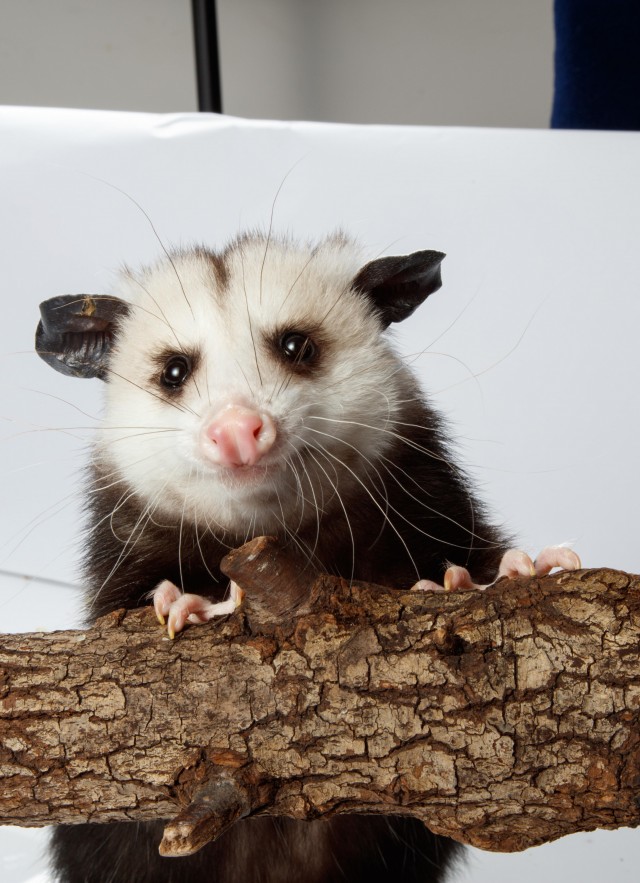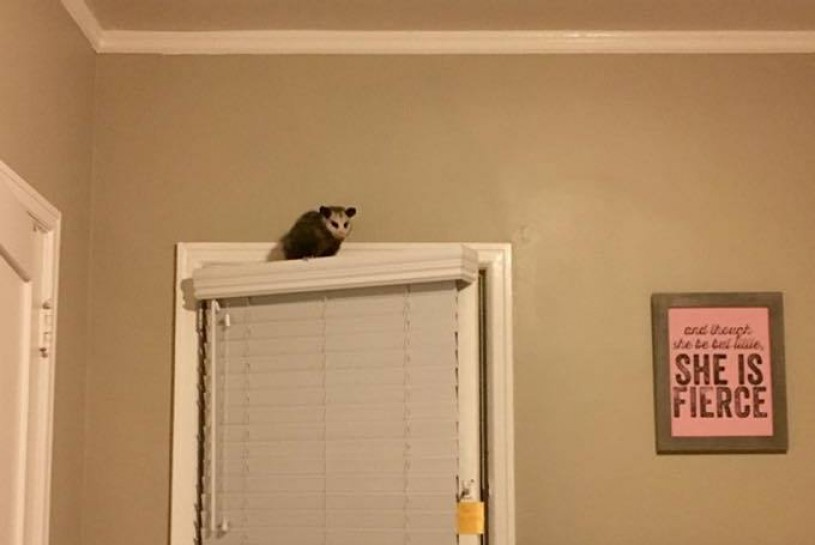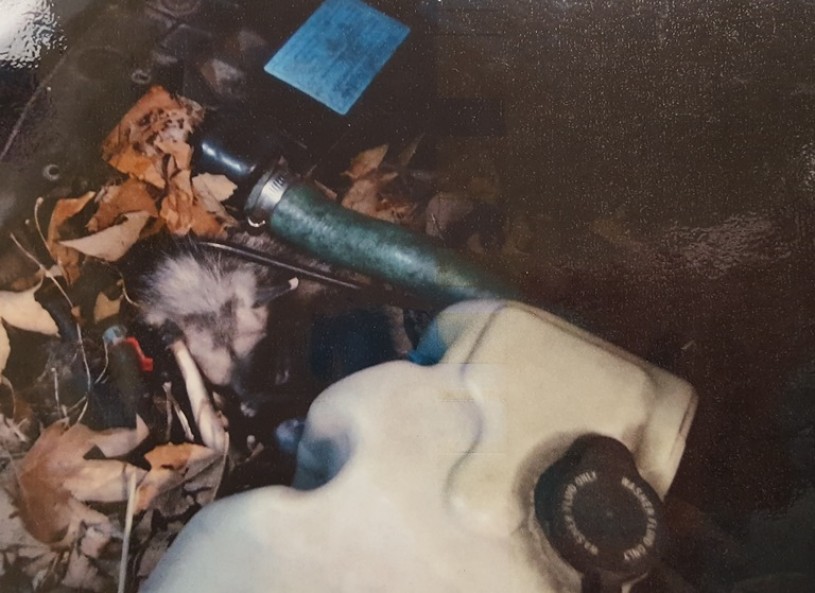BE ADVISED: On Saturday, February 21, the Natural History Museum will be closing at 4 pm. The Los Angeles Memorial Coliseum will host the LAFC vs. Inter Miami soccer match, with kickoff at 6:30 pm. This event will impact traffic, parking, and wayfinding in the area due to street closures. Please consider using public transportation or rideshare.
BE ADVISED: The Natural History Museum is not participating in SoCal Museums Free-for-All on Sunday, February 22.
Baby Opossums in Your House!
Who could be mad at that face for moving in?

By Leslie Gordon
Baby opossum season is thankfully coming to a close, but only for a short while! We get quite a few calls here in the Live Animal Programs office when these bumbling troublemakers are out looking for a new place to call home.

A few years back, a young opossum made its home in the engine block of a Museum pool vehicle that hadn’t been used for a while. You can see with the leaves he dragged in, it was a perfectly cozy den. Luckily for him we didn’t start the engine and he was an easy eviction. More recently, a friend of an NHM staffer wrote in a panic questioning how to get an opossum out of her house. It had pulled off a window screen and attempted to make itself at home.

But we’re lucky. According to one rehabber I know, she gets calls several times a day early February/March and July/August. Of course, the young marsupials aren’t really looking for trouble, but they absolutely find it in our yards, homes, sheds, garages, engine blocks… you name it.
When they emerge from mom’s pouch and start riding on mom’s back, or tagging along behind her is the time when they start getting into trouble. If the mom did not become roadkill, and her scampering young were not grabbed up by a dog or cat, (the former scenarios comprise most of the rehabbers’ calls to rescue babies) they eventually start to look for a place to call their own. And they can call anything a home--under your garage, porch---almost anywhere.
We get our fair share of calls, but the reason it gets especially crazy for rehabbers is because opossums are virtual baby factories. Unlike many mammals, the baby season can happen multiple times a year, and at around 13 babies a litter, that’s a lot of babies! And they are in a hurry, too. They gestate for just 12 days, and when they are born (the size of honeybees), they have just a few minutes to race to one of 13 teats in mom’s pouch. They latch on and nurse for about 100 days, but toward the end of that period, they get large and start riding on mom’s back garbage-man-style. And at just about 3 to 4 months of age they are ready to go on their own! It is shocking to most people to see how small they are when they are technically ready to go. But remember--for an animal that lives maybe 3 years tops, every month is rather like 3 years of ours. And those first few months out of the pouch are clearly a real obstacle course for them.
So what to do if you run into one of these little kiddos when the next season comes around?
#1 Please don’t attract them by feeding. We strongly discourage feeding most any wild animals, especially nonnatives like opossums.
#2. If they are discovered in your trash cans, typically either gaping their giant mouths or playing dead, simply tip the can so they can get out, or put in a ”ladder” so they can escape. This can be a branch, an actual ladder, a crate, almost anything. Often they fall in and get stuck there. Remember, the playing dead routine is very effective. They go stiff, emit an odor and even allow flies to land on their open eyes! If you are unsure, walk away and ensure privacy/escape for at least 2 hours. If it is still there, you may have a dead opossum. If not, your ladder probably helped it get to freedom.
#3. If they are in your home, you can typically treat them like an equivalent-sized cat. If simply shooing them out with a broom didn’t work and they are very small, throwing a towel over them usually works. Wear heavy gloves if you are worried. If they are larger, your presence is usually enough. But leave a clear, unobstructed exit back out of your home and you'll make outdoors seem more appealing. Just make sure a curious dog or neighbor isn’t blocking the path.
The best advice is to be patient. They’re slow, but they really don’t want to tangle with humans.
City of Los Angeles Animals Services – Wildlife 323-225-9453
Coast and Canyon Wildlife Rehabilitation 310-480-1760
County of Los Angeles Animal Control – Wildlife 562-728-4882
Pasadena Humane Society & SPCA – Wildlife 626-792-7151